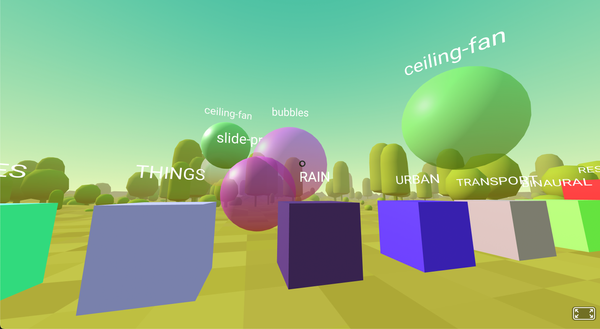AI in The Healthcare Industry - Unlocking Potential Amongst Challenges
Table of Content
We have all seen the power of AI chatbots in general daily matters, starting from basic questions up to complex mathematical equations. Imagine integrating this power into the healthcare industry.
But is it all too nice and shiny? No. We are discussing the challenges and concerns of integrating artificial intelligence with the healthcare sector and how to overcome these limitations.
Issues with healthcare digital information:
Did you know the healthcare sector is responsible for approximately 30% of all the world's data, with an expected compound annual growth rate of around 36% by 2025? Putting this into numbers, a Stanford study predicted that 2,314 exabytes would be produced by the healthcare industry in 2020.
A survey conducted by healthcare data company PureSpectrum shows that, in the United States alone, the healthcare industry could have saved around $16 billion just by better data utilization and processing in 2020.
Applications of AI in the healthcare sector:
Ideas to better utilize data generated by the healthcare sector include:
- AI-Powered Diagnostic Tools: By combining computer vision for medical imaging and machine learning, we can revolutionize patient care diagnostic tools.
- Advanced Algorithms for Medical Records: Adding natural language processing to the equation, we can produce advanced algorithms to extract and analyze unstructured medical records.
- Public Health Surveillance: Public health surveillance can benefit from predictive modeling. By analyzing historical and real-time data, we can accurately forecast disease transmission. We could have stopped the spread of COVID-19 much quicker.
- Personalized Medicine: Imagine tailored medicine to treat your symptoms in a way that fits your body's needs. It's like 3D printing, but for medicine.

Challenges and Considerations:
As we mentioned, it's not all sunshine; some of the concerns are:
- Like any big data solution, the data sources vary, as well as the communication protocols, besides storage formatting. Lack of standardization and interoperability makes it hard to integrate the data for analysis.
- With great power comes great responsibility. Data privacy is highly sensitive when it comes to healthcare data. Any solution that has access to this data needs to comply with regulations such as HIPAA (Health Insurance Portability and Accountability Act) in the U.S. and the GDPR (General Data Protection Regulation) in Europe, ensuring data privacy across all involved entities.
- Any AI model needs data to train the model; with that comes data governance and ownership. OpenAI faced a $3 billion compensation lawsuit due to the way it harvested the data used to train ChatGPT. This resulted in public calls for regulation on how chatbots gather and use data.
What next:
The artificial intelligence healthcare market, valued at $11 billion in 2021, is projected to be worth $187 billion by 2030. With this massive market value, a lot of companies are trying to get a piece of the pie.
Especially by adding smartwatches and the Internet of Things to the equation, we expect a drastic change with hospitals, medical providers, and biotechnology companies. And with the massive usage of chatbots and personal assistants, more and more companies will join the party of integrating their healthcare solutions with these chatbots, even integrating with smart homes.
Resources:
- https://www.brunswickgroup.com/healthcare-data-i20729/
- https://med.stanford.edu/content/dam/sm/sm-news/documents/StanfordMedicineHealthTrendsWhitePaper2017.pdf
- https://www.rbccm.com/en/gib/healthcare/episode/the_healthcare_data_explosion
- https://www.caqh.org/hubfs/43908627/drupal/explorations/index/2020-caqh-index.pdf
Author Bio: (Mohamed Youssef)
Mohamed Youssef is a Senior Backend Software Engineer with nearly a decade of experience in software development, spanning front-end, back-end, and computer vision projects.
His expertise covers various industries, including healthcare, governance, and identity and access management (IAM), and his work has had a global reach, with contributions in countries like the United States, Egypt, and the UAE.
Graduating with a Bachelor’s degree in Management Information Systems from Helwan University in 2013, Mohamed has continuously honed his skills, leading to his pursuit of a Master’s degree in Computer Science at Maharishi International University.
He has worked with prestigious organizations such as 7-Eleven, Walmart, The Linux Foundation, and Andela, where his technical prowess led to remarkable project outcomes, including cost reductions, performance improvements, and customer engagement enhancements.
Notably, while working at 7-Eleven, Mohamed designed and implemented a new order fulfillment flow architecture, which resulted in a 92% reduction in operational costs and a 56% reduction in P98 order processing time. This system overhaul also achieved a 72% reduction in total requests, while the total orders handled surged by 134%.
In addition to his technical skills in Java, Node.js, Spring, Angular, Docker, and AWS, Mohamed has demonstrated leadership in software architecture design, security enhancement, and system scalability. His commitment to improving software quality and efficiency has led to the delivery of highly resilient systems, as seen in his work on Walmart’s point-of-sale system, where he improved the system’s stability and resilience.
Throughout his career, Mohamed has been a strong advocate of agile methodologies and microservices, and he has consistently delivered solutions that drive significant business results.
His contributions include projects that generated millions of dollars in revenue and drastically improved system performance, such as spearheading the development of an innovative computer vision solution that drastically improved user onboarding for a leading UAE bank by optimizing the system to increase the frame rate from 3 FPS to 30 FPS.
With a solid foundation in modern software technologies and design patterns, coupled with his dedication to continuous learning, Mohamed Youssef stands out as a highly skilled and innovative engineer in the software development industry.

















